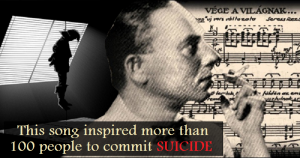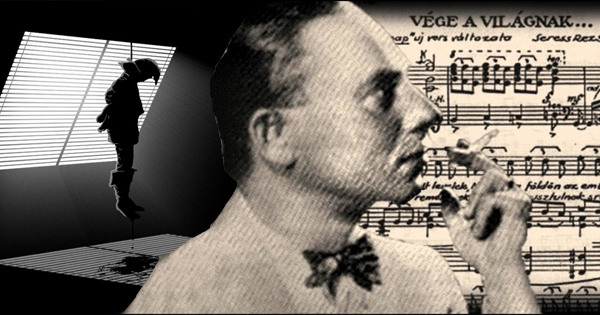
Gloomy Sunday: This Hungarian Suicide Song Inspired More Than 100 People To Commit Suicide
Do you know what is probably the best known song concerning suicide? It’s “Gloomy Sunday”, the “The Hungarian Suicide Song”. It was composed in 1936 by Hungarian pianist Rezso Seress & it was banned for 66 years by the BBC in England until 2002 because of its connection to a rash of 20th century suicides.
A March 1936 article in Time Magazine lists off a spate of suicides in Hungary that were allegedly connected to the song: a shoemaker quoted the song in his suicide note; two people shot themselves while listening to bands; people reportedly drowned themselves in the Danube while holding the sheet music.

Here’s the translation of lyrics in English:
“On a sad Sunday with a hundred white flowers
I was waiting for you, my dear, with a church prayer
That dream-chasing Sunday morning
The chariot of my sadness returned without you.
Ever since then, Sundays are always sad
Tears are my drink, and sorrow is my bread.
Sad Sunday.
Last Sunday, my dear, please come along,
There will even be priest, coffin, catafalque, hearse-cloth.
Even then flowers will be awaiting you, flowers and coffin.
Under blossoming (flowering in Hungarian) trees
My journey shall be the last.
My eyes will be open, so that I can see you one more time
Do not be afraid of my eyes as I am blessing you even in my death.
Last Sunday.”
Here’s the song:
WARNING: This song has been blamed for more suicides than any other song in history.
Here’s the English version of the Song:
Billie Holiday recorded her version of “Gloomy Sunday” in 1941.